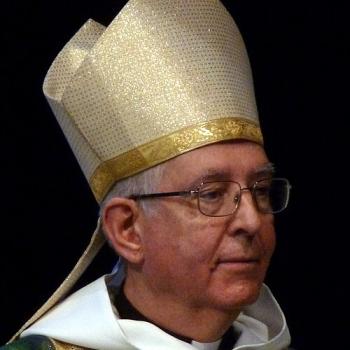I bought this book several years ago and. put it aside in frustration after reading a few pages. It really is a diary, or perhaps more exactly, a journal.
After a couple of years, I started it again. This time, instead of reading it straight through like a novel, I just read a single entry every night before going to sleep.
It took me a couple of years to read it this way, but by the time I finished, I had begun praying the Divine Mercy chaplet several times a week and developed a new, much deeper understanding of and reliance on the Mercy of Christ.
Reading this diary/journal confirmed something I already had observed at other times. The people God calls for his special work and who say “yes” to Him are different from you and me. They are special in an extraordinary way.
They don’t usually, at least in my experience, look all that special. And they aren’t, again in my experience, extraordinarily gifted or talented. And none of them I’ve seen are highly placed in this world. But they are as different from the rest of us as a diamond lying in a field is different from the rocks lying around it.
In St Faustina’s case, she was gifted, or perhaps afflicted, depending on how you view it, with an extreme mysticism. She saw Jesus and Mary, not just in a once-in-a-lifetime vision, but as part of her ordinary life. When I began reading her account of this the first time, one reason I became frustrated is that I wondered if she was simply schizophrenic rather than a great mystic. This question lingered off and on through the daily readings.
What made me decide that she was a mystic who really was privileged in an incredible way was the profundity and linear integrity of her message, coupled with the fact that what she was saying is true. The Divine Mercy is real, and the chaplet has its own special grace.
I’ve come to regard the Divine Mercy chaplet as something akin to a little exorcism. It has the power to stay the hand of evil, and it is cleansing to pray.
Aside from that, there is the simple, powerful message of Divine Mercy that St Faustina gave us. It is deeper, richer and more specific than anything else I’ve ever read. It goes beyond “Jesus forgives our sins” and provides assurance that Our Lord extends His mercy to us even in the last extremity of life, in the final moments after the heart stops beating and the soul is departing, we can still cry out to Him and receive His mercy.
That message is a message of hope for people like me who know individuals who died without accepting Christ. There is hope that this person, once they saw the other side, made that last turn to Him and that I will see them again one day.
I am not recommending that you go out and buy a copy of this diary and sit down and start reading it straight through. That would be a slog and I think the meaning might get lost in the minutiae. If you want to read it, I think it would be better to take it in small doses and give each dose time to settle. There’s a lot here, but like St Faustina’s relationship with Jesus, much of it is hidden in the details of dailiness.
This is an unedited, rambling, diary of an enclosed nun who did the manual labor in her convent, cooking, scrubbing and cleaning. Along with the visions, St Faustina tells us about the daily annoyances of convent life, the hurt feelings, slights, jealousies nd misunderstandings. I would guess that the more cultured nuns who occupied higher rungs in the convent hierarchy were not happy to know the humble kitchen nun was the one singled out by God.
But, as I said, the people God selects are quite ordinary at first glance. It’s only as you spend time with them and get to know them and see them as they do what they are called to do that you realize they are in fact extraordinary people called by God for extraordinary things. They’re different from the rest of us. The difference doesn’t show on the outside. But it’s there, and it’s powerful.













